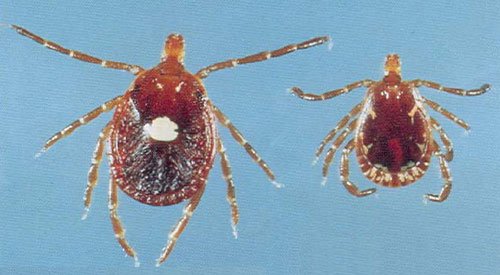Echinacea is an herbal remedy that should not be given to children under 12, the UK’s drugs watchdog has warned parents.
The Medicines and Healthcare products Regulatory Agency (MHRA) in UK said there was a small risk of severe allergic reactions and this outweighed any perceived benefits.
Some people take the tablets to reduce the severity of cold and flu.

Echinacea is an herbal remedy that should not be given to children under 12, the UK's drugs watchdog has warned parents
The MHRA said it was a precautionary measure and older children and adults could continue to use echinacea.
It said young children were at heightened risk of allergic reactions such as rashes, hives, difficulty in breathing and even potentially fatal anaphylactic shock.
Richard Woodfield, the head of herbal policy at the MHRA, said: “This is not a serious safety issue, but parents and carers need to be aware that children under 12 could have a low risk of developing allergic reactions.
“The measures being taken are precautionary in nature. Parents should not worry if they have given echinacea to children under 12 in the past.”
Licensed products containing echinacea, some of which are aimed at children, will have to be labelled with the warning.
US researchers claim that omelettes, meringues and pasta could one-day be back on the menu for some people with egg allergies after they are treated with the food they are allergic to.
The only option for patients is to completely avoid foods containing egg.
A study on 55 children showed some were able to eat egg after minuscule amounts were gradually added to their diets.
However, the treatment is still experimental and doctors say it should not be tried at home.
Egg allergies are one of the most common allergies and are thought to affect up to 2.5% of children.

Egg allergies are one of the most common allergies and are thought to affect up to 2.5 percent of children
Gradually introducing the food which causes an allergic reaction has been successful in other foods such as such as peanuts.
Parents were given powdered egg to mix into their children’s food, building up to about a third of an egg every day.
The findings, presented in the New England Journal of Medicine, report that after 22 months of egg therapy, 75% of the children were able to eat the equivalent of two eggs without reacting.
The children were tested again after at least a month of no longer having the daily egg treatment. Of these, 28% could still eat egg without reacting and were considered allergy-free.
One of the researchers Dr. Wesley Burks, from the University of North Carolina School of Medicine, said: “This study gives us hope that we’re closer to developing a treatment.
“Almost a third of the children had a permanent change and were no longer egg-allergic.”
Dr. Stacie Jones, from University of Arkansas, said: “Reducing these kids’ allergic response to egg also lessened parental anxiety over how their children might react if accidentally exposed to egg at school or at someone else’s house.”
However, about 15% of children did not finish the treatment, mostly due to allergic reactions.
Hundreds of people in the U.S. have mysteriously developed meat allergy over the last few months.
And this rash of meat allergies, currently sweeping the East Coast of America, appears to have been caused by one single, little species of tick.
The lone star tick (Amblyomma Americanum), which is named for the tiny white spot on its back, may look harmless, and only causes a tiny little prick on your skin – but what follows next is a complete and potentially life-long, aversion to meat.
Dr. Scott Commins, the assistant professor of medicine at the University of Virginia, said the animals’ saliva trickles into the wound and causes the violent reaction – which can cause potentially deadly allergic reactions.
He said: “People will eat beef and then anywhere from three to six hours later start having a reaction; anything from hives to full-blown anaphylactic shock.
“And most people want to avoid having the reaction, so they try to stay away from the food that triggers it.”

The lone star tick (Amblyomma Americanum) only causes a tiny little prick on your skin, but what follows next is a complete and potentially life-long, aversion to meat
He said he had seen about 400 cases, of which 90% of the patients had a history of tick bites.
Studies are now being carried out to confirm that the theory and Dr. Scott Commins added: “It’s hard to prove – We’re still searching for the mechanism.”
Dr. Scott Commins plans to research into the effects of the tick saliva on the human body’s natural antibodies for alpha-gel, which is contained in red meat, lamb and pork.
He said the antibodies in the blood rise after lone star tick bites – and hopefully experiments will prove this is the mechanisms causing the allergies.
Allergies usually first appear in children and rarely start in adults. The most common allergies include peanuts and pet hair.
But for adults who have been meat-eaters all their lives, suddenly developing this allergy could be difficult.
Dr. Scott Commins added: “Some people are totally destroyed. Others say: <<maybe I’m better off without it>>.”



